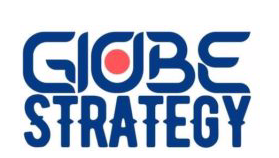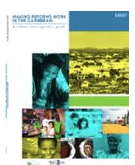Part memoir, part crash-course in economic theory, this deeply engaging book by one of the world’s foremost economists looks at economic ideas through a personal lens. Together with an introduction to some of the central concepts in modern economic thought, Ariel Rubinstein offers some powerful and entertaining reflections on his childhood, family and career. In doing so, he challenges many of the central tenets of game theory, and sheds light on the role economics can play in society at large. The book is as thought-provoking for seasoned economists as it is enlightening for newcomers to the field.
Author: globestrategy
Understanding the Poverty Impact of the Global Financial Crisis in Latin America and the Caribbean
Citation
Latin America and the Rising South : Changing World, Changing Priorities
The world economy is not what it used to be twenty years ago. For most of the 20th century, the world economy was characterized by developed (North) countries acting as ‘center’ to a ‘periphery’ of developing (South) countries. However, the recent rise of developing economies suggests the need to go beyond this North-South dichotomy. This tectonic re-configuration of the global landscape has brought about significant changes to countries in the Latin America and Caribbean (LAC) region. The time is ripe for an in-depth analysis of the dynamics and nature of LAC’s external connections. This latest volume in the World Bank Latin American and Caribbean Studies series will focus on the implications of these trends for the economic development of LAC countries. In particular, trade, financial, macroeconomic, and sectoral shifts, as well as labor-market aspects will be systematically analyzed.
Making Reforms Work in the Caribbean : A Collective Action Approach to Growth
The Caribbean Growth Forum (CGF) was thus designed to respond to these concerns: to be both a forum of dialogue to identify needed reforms, and a catalyst for the implementation of agreed reform priorities, creating the needed accelerators to make reforms happen, while keeping in mind the political economy factors that have impeded reforms in the past. Since inception, the CGF process has been solidly grounded on few core principles: (i) tailoring: the approach is based on locally defined problems and solutions (home grown); (ii) action-orientation: prioritization and sequencing of reforms (e.g., combining gradual reforms with longer term structural changes) and their translation into clear, achievable and measurable targets, dashboards and roadmaps for implementation; (iii) transparency: making both targets and the process public to increase participation and shared commitments, thus creating a routine culture of public reporting to track progress openly (introduce behavioral changes); (iv) flexibility: to ensure that the process allows for adjustments if targets are not reached and to create space for innovation; and (v) accountability: infusing a sense of shared responsibility across the coalition that is supporting change, thus moving from a blaming culture to a culture of finding solutions by doing; and, eventually, anchoring the process around a small group of responsible government officials and support them in delivering policies.
Afghanistan – Language, Culture, Customs and Etiquette
This guide⊕ is useful for anyone researching Afghan culture, customs, manners, etiquette, values and wanting to understand the people better. You may be going to Afghanistan on business, for a visit or even hosting Afghani colleagues or clients in your own country. Remember this is only a very basic level introduction and is not meant to stereotype all Afghanis you may meet!
Country culture profiles
Understanding culture and languages to help in market entry strategies
The challenge of emerging markets
pax indica – projecting Indian power
Issues in Globalization
For a mind map of the lecture click here. https://drive.google.com/file/d/0B4xsUWIwgtY-Y3M0Zy0zQkstSW8/view?usp=sharing
The Presentation slides can be downloaded from issues in globalization1











